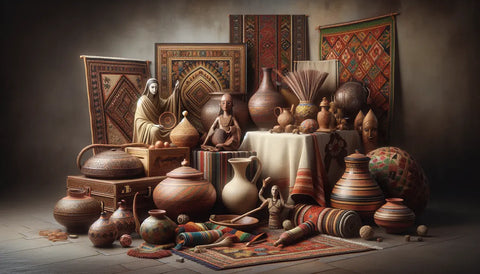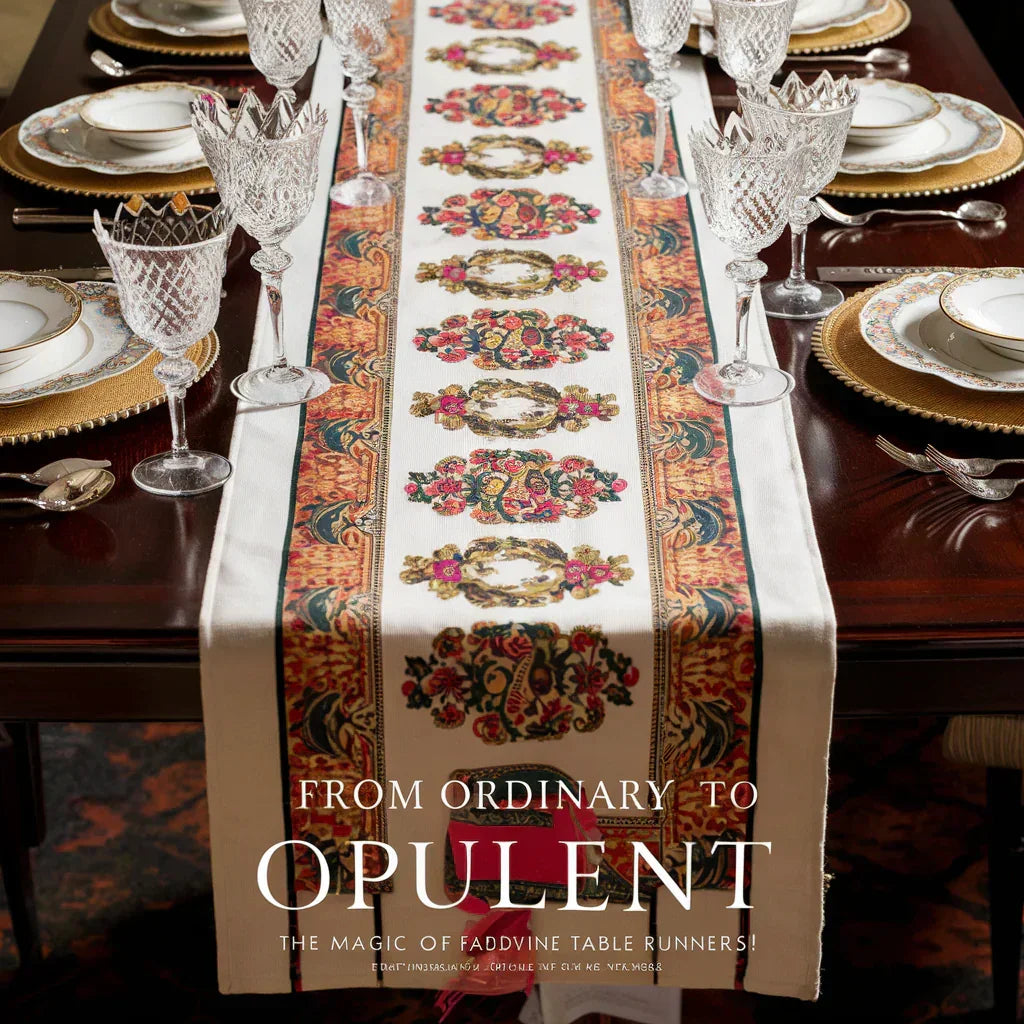Introduction to Patterned Pillow Covers in Home Decor
Patterned pillow covers bring more than just color to a room; they're a whisper from the past, telling stories through designs. Each pattern holds a meaning, reflecting cultures, traditions, or simply a designer's whim. When chosen wisely, these covers can transform a mundane space into a reflection of personal style or a tribute to ancestral roots. From geometric shapes that echo ancient motifs to floral prints that bring nature indoors, every pattern has its place and purpose. They're not just for show; they add comfort and a sense of belonging to any living space. So, diving into the world of patterned pillow covers isn't just about picking out something pretty; it's about making a statement and connecting dots across time and space.
The History Behind Patterns in Home Decor
Patterns in home decor have been telling stories for centuries. They’re not just pretty designs thrown onto fabric. Each pattern has a history, a reason it came to be. Take the paisley pattern, for instance. It’s more than just a teardrop design; it originates from Persia, symbolizing life and eternity. Then there's the chevron pattern. You’ve seen those zigzags on rugs and curtains, right? They date back to 1800 B.C., first appearing in Greece on pottery and in military insignias, representing strength and bravery. And let’s not forget about the classic polka dots, which surged in popularity in Europe during the late 19th century, often tied to elegance and playfulness. When you choose a patterned pillow cover or any patterned item for your home, you're embracing a piece of history, a snippet of a culture. It’s not just about what looks good. It’s about telling a story, your story, through the universal language of patterns. So next time you pick out a pattern, think about what story you want your home to tell.

Cultural Significance of Common Patterns
Patterns in home decor are not just about making your living space look good. They hold stories, traditions, and meanings passed down through generations. Take the Hound tooth pattern, for example. Originating from Scotland, this duotone pattern represents the rugged landscape of the Scottish Lowlands. It has become a symbol of sophistication and classic style in home decor. Then there's the Chevron pattern. It traces its roots back to ancient Greece, where it symbolized strength, power, and a connection to the gods. Today, it adds a dynamic vibe to any room, embodying energy and movement. The Paisley pattern, with its distinctive swirling shapes, tells a tale of immigration and trade. Hailing from Persia (now Iran) signifies life and eternity, commonly found in bohemian themes to evoke a sense of freedom and adventure in decor. Each pattern carries a cultural significance, transforming a simple pillow cover into a piece of history and art. When you choose a patterned pillow cover, you're not just picking a design. You're embracing a piece of culture, a slice of history that adds depth and narrative to your home’s aesthetic.
How Patterned Pillow Covers Enhance Room Aesthetics
Patterned pillow covers are more than just a place to rest your head. They're a secret weapon in the art of room decoration. Imagine walking into a room and feeling instantly at ease, intrigued, or even energized. That's the power of patterns at play. By choosing the right patterned pillow covers, you can add depth, character, and emotion to any space. They bring color, break the monotony of solid colors, and introduce texture in a subtle yet impactful way. Whether it's bold geometric shapes that add a modern touch, soft floral designs that create a peaceful retreat, or eclectic prints that showcase your personality, each pattern tells a story. And remember, mixing patterns is not off-limits. It's about balance. Pairing a dominant pattern with simpler designs can create a cohesive yet dynamic look. So, don't underestimate the influence of patterned pillow covers. They're small details that make a big difference in transforming a room from ordinary to extraordinary.
The Psychology of Patterns in Interior Design
Patterns in interior design do more than just look pretty; they play with our minds in fascinating ways. For instance, stripes can make a space feel larger, while big, bold prints can infuse a room with energy and life. On the flip side, gentle, flowing patterns may calm us down, making them perfect for bedrooms or spots where we like to unwind. Designers often pick specific patterns based on the vibe they want to create. Want a room to feel cozy? They might go for small, repetitive designs. Looking for some drama? Then it's big, standout patterns to the rescue. It's all about the feel the patterns evoke and how they make our spaces not just look, but feel right to us.
Various Types of Patterned Pillow Covers and Their Origins
Patterns on pillow covers aren't just for show; they carry centuries of history, culture, and symbolism in their threads. Let's dive into a few popular patterns and their roots. Stripes, often seen in coastal-inspired rooms, have a nautical origin, symbolizing the sea's calm and vastness. Polka dots, now considered whimsical and fun, originated in Europe and gained popularity through fashion before making their way into home decor. Floral patterns are likely the most diverse, with each culture imbuing its symbolic meaning to different flowers. For instance, in Japanese decor, cherry blossoms symbolize the fleeting nature of life, while in Victorian England, roses were all about romance and secrecy. Then, there's the geometric pattern, which saw its rise in the Art Deco movement of the 20th century, representing modernity and elegance. Each pattern holds a piece of history and personalizes our living spaces, turning a house into a home.

Integrating Patterned Pillow Covers into Modern Home Decor
Adding patterned pillow covers to your home decor is not just about boosting the aesthetic appeal, it's a game-changer in adding personality and depth to your living spaces. These beauties bring color, texture, and a slice of culture right into your room, making your space more inviting and vibrant. Now, how do you integrate them without turning your room into a chaotic mix of patterns and colors? First, start small. If your room has a neutral palette, a set of colorful patterned pillow covers can be the pop of color your space needs. Consider the colors already in your room and pick pillow covers that complement or nicely contrast these hues. Balance is key. Mixing patterns is okay, but aim for a cohesive look. You can achieve this by sticking to a consistent color scheme across all patterns. This doesn't mean everything has to match perfectly, but the colors should work well together. Texture talks! Different textures add an extra layer of interest to your room. Combining a smooth, satin pillow with a rough, woven one can elevate the look even further. Finally, let the pattern tell a story. Whether it's geometric shapes for a modern touch or floral prints for a vintage look, let the patterns on your pillow covers reflect your personality or the ambiance you want to create in your home. By following these simple tips, integrating patterned pillow covers into your home decor can effortlessly transform your space into a cozy, stylish haven.
Care and Maintenance of Patterned Pillow Covers
Taking care of patterned pillow covers is straightforward but crucial for keeping their designs lively and fresh. Firstly, always check the care label before washing them. Many covers are fine with a gentle machine wash, but some might need hand washing or dry cleaning. Use cold water and a mild detergent to avoid fading those beautiful patterns. Secondly, air drying is best. Direct sunlight can help some fabrics, but too much can fade vibrant colors, so be mindful. If you must use a dryer, opt for a low-heat setting. Lastly, ironing might be necessary for some fabrics to keep them looking crisp but do so on the reverse side to protect the patterns. These simple steps ensure your patterned pillow covers stay as stunning as the day you got them.
Stories Behind Popular Patterns in Home Decor
Every pattern tells a story, and in the world of home decor, these stories bring depth, culture, and personality to our homes. From the intricate Ikat prints that whisper tales of ancient weaving in Central Asia to the bold, geometric designs of Aztec motifs speaking of powerful civilizations in Mexico, patterns are more than just pretty designs. They hold history and meaning. Take, for instance, the chevron pattern, often found zigzagging its way across pillows and wallpapers. It’s not just a trendy design; it symbolizes continuity and protection, dating back to ancient Greek pottery. Then there’s the timeless Paisley, originating from Persia, embodying life and eternity with its droplet-shaped motif. These patterns, whether they are gracing pillow covers or adorning your walls, do more than just complement your decor. They bridge our contemporary lives with the rich tapestry of our past, making the space we live in not just a house, but a story-filled home.
Conclusion: Making a Statement with Patterned Pillow Covers
Patterned pillow covers do more than just add color and texture to a room—they're a statement of your taste and a reflection of cultural influences that span the globe. They turn ordinary spaces into expressions of personality, and by choosing the right patterns, you can bring a piece of the world into your home. Whether it's the bold and geometric shapes inspired by African art, the intricate and detailed designs found in Indian textiles, or the minimalist and nature-inspired patterns from Japanese decor, each pattern holds a story, a tradition, and a unique aesthetic appeal. So, when you're picking out your next set of patterned pillow covers, remember that you're not just decorating your home. You're embracing a rich tapestry of global culture, history, and personal expression. Make it count.




